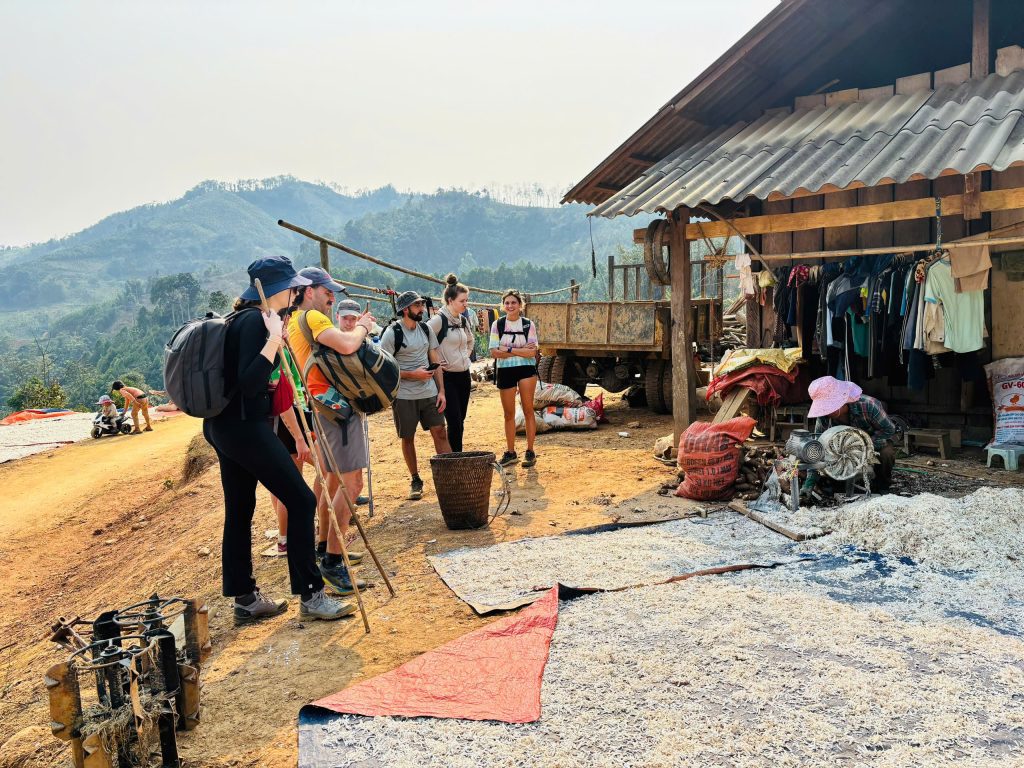Ba Be National Park in Bac Kan Province, Vietnam, recently welcomed a delegation from the Perlis State Government, Malaysia, for a three-day working visit from December 18 to 20, 2024. The visit was part of a knowledge-sharing initiative focusing on conservation management, eco-tourism development, and sustainable community engagement.

Purpose of the Visit
The Malaysian delegation arrived at Ba Be National Park to learn about its management strategies, biodiversity conservation programs, and eco-tourism models. As one of Vietnam’s 12 ASEAN Heritage Parks, Ba Be serves as a model for balancing environmental protection with cultural preservation and tourism growth.
During discussions at the park headquarters, the two sides shared insights on:
- Park management and operations
- Strategies for biodiversity conservation
- The role of local communities in sustainable tourism
- Approaches to gain and maintain ASEAN Heritage Park recognition
The dialogue also emphasized how the park integrates into national and regional conservation networks, reinforcing its importance as a hub for environmental cooperation.
Cultural Exchange and Official Meetings
The Management Board of Ba Be National Park hosted formal sessions with the Malaysian delegation, providing presentations on conservation projects and eco-tourism activities. As a gesture of goodwill, the delegation offered souvenirs to park representatives, strengthening cultural ties between the two sides.
Field Visits: Livelihood Models and Eco-Tourism
Following the meetings, the delegation explored community-based livelihood models in the buffer zone of the park. These initiatives demonstrate how biodiversity can support local economies while reducing pressure on natural resources. Highlights included:
- Honey value chain model: promoting sustainable beekeeping and high-quality honey products
- Bo Khai value chain: showcasing the cultivation of a traditional edible plant unique to the region
By witnessing these models firsthand, the delegation gained insights into how conservation efforts can directly improve local livelihoods.






Experiencing Ba Be Lake and Natural Attractions
The visit also included eco-tourism experiences, offering the delegation a chance to enjoy the natural beauty and cultural heritage of the park. Activities included:
- Touring Ba Be Lake, Vietnam’s largest natural freshwater lake
- Visiting Dau Dang Waterfall
- Exploring traditional Tay ethnic minority villages
- Sampling local culinary specialties








These experiences highlighted how eco-tourism in Ba Be National Park combines environmental education with cultural immersion, creating sustainable tourism opportunities for the region.
Ba Be National Park: An ASEAN Heritage Park
With its pristine forests, limestone mountains, caves, and diverse ecosystems, Ba Be National Park represents the ecological and cultural richness of Northeast Vietnam. Its recognition as an ASEAN Heritage Park underlines its regional importance and international value as a conservation site.
The park continues to attract researchers, conservationists, and eco-tourism practitioners from around the world who seek to learn from its management approaches and biodiversity resources.
Looking Ahead: Expanding International Cooperation
The Management Board of Ba Be National Park expressed its commitment to expanding partnerships with regional and international organizations. Future priorities include:
- Enhancing biodiversity conservation programs
- Supporting community-based tourism initiatives
- Strengthening the park’s role in ASEAN and global conservation networks
- Promoting Ba Be National Park tours for educational and cultural exchange
Through these efforts, Ba Be aims to remain a destination not only for travelers but also for policymakers, researchers, and organizations dedicated to sustainable development.
Conclusion
The Malaysian delegation’s visit to Ba Be National Park marked a valuable step in fostering cross-border collaboration in conservation and sustainable tourism. By sharing experiences, knowledge, and cultural exchange, both sides contributed to strengthening regional cooperation while showcasing Ba Be’s unique role as a model of eco-tourism and biodiversity protection in Vietnam.

